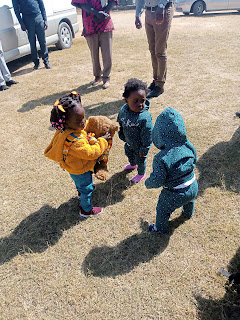By Victor: Thursday, 15 September 2022
<script async src="https://pagead2.googlesyndication.com/pagead/js/adsbygoogle.js?client=ca-pub-5632014805880740" crossorigin="anonymous"></script> My wife and daughter - Video. HOW READING CAN IMPACT YOU AND YOUR FAMILY Reading is a powerful activity that can benefit you and your family in many ways. Research shows that reading can enhance cognitive, language, and social development in children and adults. (Edwards, 2011). I have seen the positive effects of reading in my own family. My two-year-old daughter loves school and reading very much. We have been preparing her for that by buying her books and reading to her. Whenever we are reading for our personal studies, we read out loud so that she can hear and learn. Access to books prepares children for community impact and academic success. I believe that one of the greatest gifts we can give to our children is access to books. (Edwards, 2011). Reading is not only important for achievement, but a...










